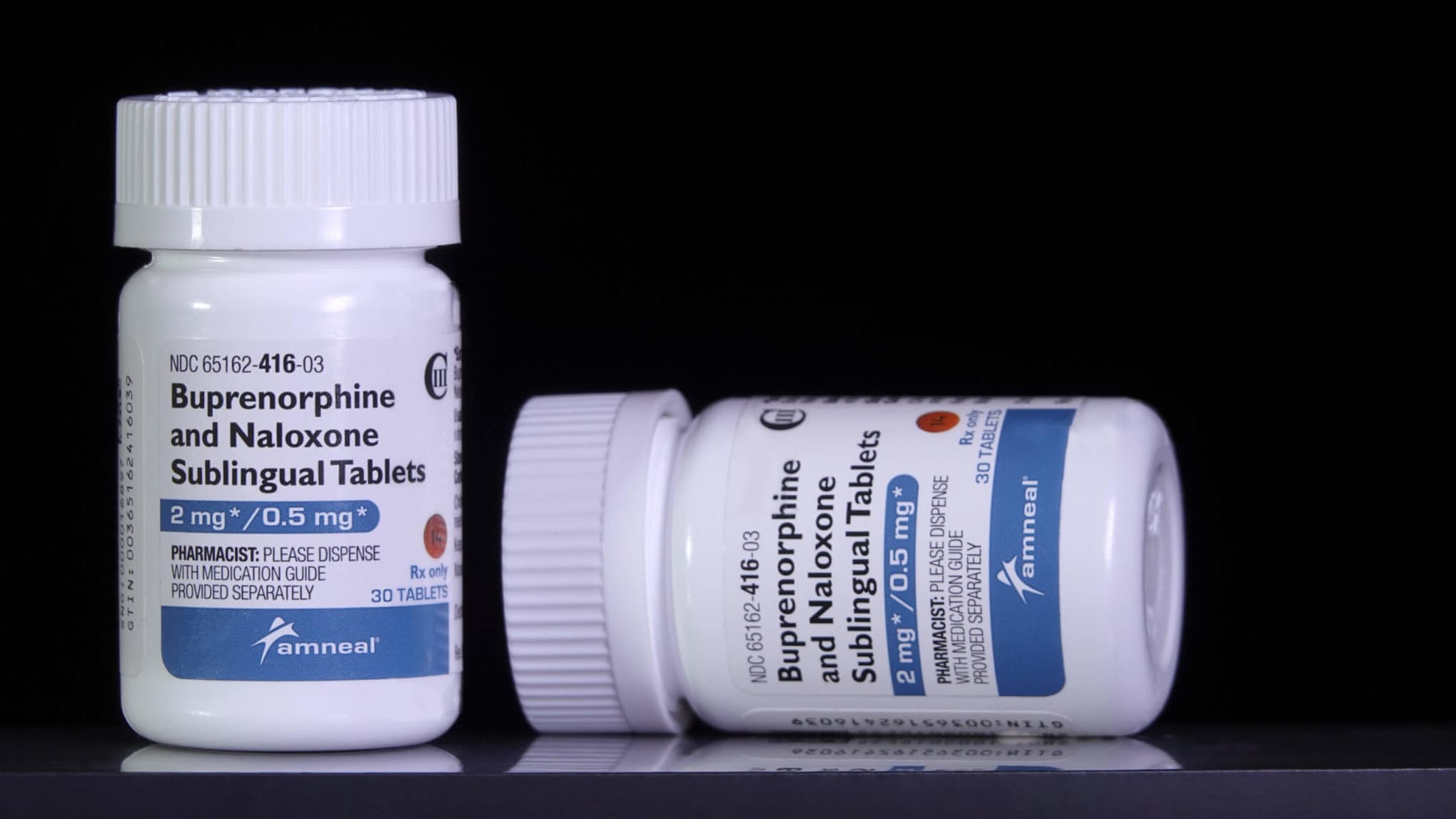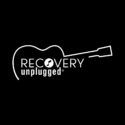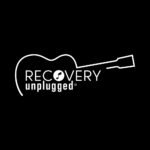Suboxone Personality Changes and Other Signs and Symptoms

Suboxone (buprenorphine) is a medication often used to treat opioid use disorder (OUD) by managing withdrawal symptoms and alleviating intense cravings that can lead to relapse.[1] While Suboxone contains buprenorphine, a partial opioid agonist, it is formulated to minimize the potential for abuse and addiction. When used as prescribed for opioid use disorder, the risk of developing an addiction to Suboxone is significantly lower compared to other opioids. However, addiction can still occur with Suboxone.
If you or a loved one is taking Suboxone to treat OUD, it’s important to understand the common side effects and the warning signs of Suboxone abuse or addiction to get the help you need.
What Is Suboxone Used For?
Suboxone is an OUD treatment that combines buprenorphine, a partial opioid agonist, and naloxone, an opioid antagonist.[2] It’s used to stabilize people struggling with opioid addiction during the medical detox process and reduce the cravings that can cause relapse to support long-lasting recovery.
With a high binding affinity, Suboxone blocks other opioids from activating the opioid receptors, deterring misuse of other opioids. It also produces a weak opioid effect on its own, though there is an upper limit to how much euphoria it can produce that reduces the risk of misuse and overdose.
Suboxone is safe when used as prescribed by a doctor to treat OUD. Taking Suboxone in higher amounts than prescribed or for longer periods, mixing it with other substances like sedatives or alcohol, or taking it close to other opioids can increase the risk of adverse effects, however.[3]
Suboxone Personality Changes
You may notice personality changes or mood swings in someone on Suboxone, but it may not be a result of the medication itself. Typically, Suboxone is started as a treatment for OUD, so mood or personality changes like depression, anxiety, irritability, or, conversely, a positive attitude can be a result of stopping opioid use.
These effects are multifactorial, so it’s difficult to say that personality changes are because of Suboxone alone, quitting opioids, co-occurring anxiety or depression disorders, or other factors that coincide.
There are reports of emotional numbness with Suboxone, however, particularly with longer use.[4] Still, the effects of Suboxone can vary from person to person.
Is Suboxone Addictive?
Suboxone is used to treat opioid addiction, but it has weak opioid effects of its own. Long-term Suboxone use can cause physical dependence and withdrawal symptoms when you stop taking the drug, which is why it’s often tapered with medical supervision.[5]
While there is some potential for misuse, Suboxone is incapable of producing intense euphoric effects like heroin or fentanyl. The inclusion of naloxone in Suboxone primarily acts as a deterrent against intravenous misuse. When Suboxone is taken sublingually as prescribed, naloxone has limited bioavailability and does not significantly contribute to the medication’s effect. Its primary role is to block the effects of other opioids, particularly when Suboxone is injected, rather than causing withdrawal in patients who take it as directed.
However, if you misuse Suboxone, there is a potential risk of addiction.
Suboxone Abuse Signs and Symptoms
It’s important to distinguish between symptoms and signs of Suboxone abuse and addiction vs. the side effects of use.
Suboxone abuse symptoms may include:
- Poor coordination or weakness
- Blurred vision
- Shallow breathing
- Extreme drowsiness
- Nausea
- Poor concentration
- Stomach pain
- Itching
- Loss of appetite[6]
While Suboxone can have side effects, attributing psychological symptoms like poor memory, erratic behavior, mood swings, and depression directly to Suboxone abuse requires careful clinical assessment. These symptoms may also be associated with underlying mental health conditions or the recovery process from opioid dependence.
Suboxone addiction, on the other hand, has behavioral symptoms that are similar to addiction to other opioids:
- Loss of interest in hobbies or activities once enjoyed
- Self-isolating to abuse Suboxone
- Missing responsibilities at work, home, or school
- Lying and manipulation
- Stealing
- Obsessive thoughts and actions related to Suboxone[7]
Treatment for Suboxone Addiction
If you or a loved one is struggling with Suboxone abuse or addiction, it’s important to seek help with an addiction treatment program. Stopping Suboxone “cold turkey” can lead to intense and uncomfortable withdrawal symptoms, including:
- Shaking or shivering
- Vomiting
- Diarrhea
- Watery eyes
- Muscle pain
- Feeling cold or hot
- Intense cravings[8]
When Suboxone is used to treat OUD, experiencing withdrawal can be enough to cause relapse with opioids like heroin or oxycodone.
The first step in seeking Suboxone addiction treatment is often medical detox to manage the withdrawal symptoms. Medical detox keeps you safe and comfortable while the drug clears your system.
Once medical detox is complete, you can enter an inpatient or outpatient program to attend treatment sessions and behavioral therapies, such as cognitive behavioral therapy (CBT). This therapy identifies unhealthy thought patterns and behaviors and develops more appropriate coping skills.
Suboxone Addiction Treatment at Recovery Unplugged
Recovery Unplugged offers comprehensive help for all types of opioid addiction, including abuse and addiction involving Suboxone. Contact us today to learn more about our treatment options and take the first step in your recovery.
Frequently Asked Questions
Does Suboxone Cause Depression?
Someone on Suboxone may be more depressed, but that could be the result of quitting opioids or due to a co-occurring disorder rather than the Suboxone itself. Some studies show that Suboxone can be effective in treating depressive disorders that have been resistant to other types of treatment.[9]
What Does Suboxone Do to You Mentally?
The effects of Suboxone vary from person to person, but it can alleviate anxiety and depression to promote more emotional stability.[10] Some studies suggest that long-term Suboxone use can have the opposite effect, however, causing numbness and a lack of awareness of emotions like happiness, sadness, and anger.[11]
Does Suboxone Help with Anxiety?
Much like depression, anxiety may increase after quitting opioids and starting Suboxone, but the medication does not necessarily cause it. It could be a co-occurring anxiety disorder or the effects of stopping opioid use.
We take our music-focused treatment for addiction very seriously, so we are going to hold our content to the same precision standards. Recovery Unplugged’s editorial process involves our editing safeguard and our ideals. Read our Editorial Process.
Sources
[1][3][5] Shulman, M., Wai, J. M., & Nunes, E. V. (2019). Buprenorphine Treatment for Opioid Use Disorder: An Overview. CNS Drugs, 33(6), 567–580. https://doi.org/10.1007/s40263-019-00637-z
[2] SAMHSA. (2024, January 30). Buprenorphine. https://www.samhsa.gov/medications-substance-use-disorders/medications-counseling-related-conditions/buprenorphine
[4] Cioe, K., Biondi, B. E., Easly, R., Simard, A., Zheng, X., & Springer, S. A. (2020). A systematic review of patients’ and providers’ perspectives of medications for treatment of opioid use disorder. Journal of Substance Abuse Treatment, 119, 108146. https://doi.org/10.1016/j.jsat.2020.108146
[6][8] RxList. (2024, January 10). Suboxone (Buprenorphine HCl and naloxone HCl): Side Effects, Uses, Dosage, Interactions, Warnings. RxList. https://www.rxlist.com/suboxone-drug.htm
[7] Mayo Clinic. (2022, October 4). Drug addiction (substance use disorder)—Symptoms and causes. Mayo Clinic. https://www.mayoclinic.org/diseases-conditions/drug-addiction/symptoms-causes/syc-20365112
[9] Lynch, S., & Benhamou, O.-M. (2019). Depression: What’s Buprenorphine Got to Do With It? American Journal of Psychiatry Residents’ Journal, 14(2), 5–7. https://doi.org/10.1176/appi.ajp-rj.2019.140202
[10] Bastien, G., McAnulty, C., Ledjiar, O., Socias, M. E., Le Foll, B., Lim, R., Hassan, A. N., Brissette, S., Marsan, S., Talbot, A., & Jutras-Aswad, D. (2023). Effects of Buprenorphine/Naloxone and Methadone on Depressive Symptoms in People with Prescription Opioid Use Disorder: A Pragmatic Randomised Controlled Trial. Canadian Journal of Psychiatry. Revue Canadienne de Psychiatrie, 68(8), 572–585. https://doi.org/10.1177/07067437221145013
[11] Lee, Y. K., Gold, M. S., Blum, K., Thanos, P. K., Hanna, C., & Fuehrlein, B. S. (2024). Opioid use disorder: Current trends and potential treatments. Frontiers in Public Health, 11. https://www.frontiersin.org/journals/public-health/articles/10.3389/fpubh.2023.1274719


